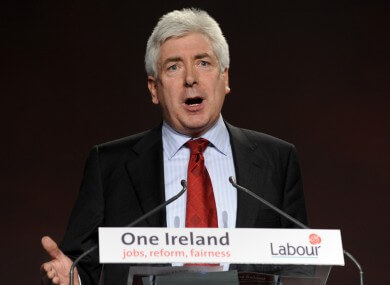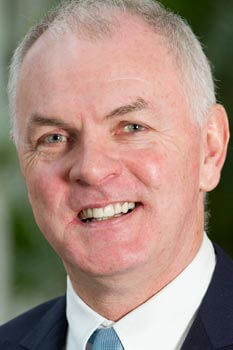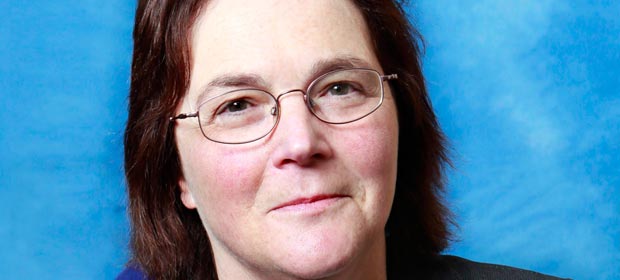- Alex White appointed to Primary Care
- A new role for hospital managers
- Minister to make recommendation on hospital site
- Dr. Barry White returns to clinical practice
- New VHI appointments
- €1.25million research network
- New HIQA guidance for managers
- Increased demand for post abortion care
- Palliative Care Education Fellowships Fund
- Interim Chief Operations Officer, Children & Family Service
- Temple Street Chief Executive
Alex White appointed to Primary Care
 Labour T.D., Alex White, has been appointed Minister of State with responsibility for primary care, in succession to his Labour party colleague, Ms. Roisin Shortall, T.D.
Labour T.D., Alex White, has been appointed Minister of State with responsibility for primary care, in succession to his Labour party colleague, Ms. Roisin Shortall, T.D.
Ms. Shortall resigned from the junior ministry post and from the Parliamentary Labour Party, saying she could no longer fulfil the role because of a “lack of support for the reforms in the programme for government and the values that underpin it.”
Her resignation followed days of controversy during which she demanded an explanation from Minister for Health Dr. James Reilly, T.D., for his controversial decision to add two towns in his constituency to a priority list for the location of new primary care centres.
A Senior Counsel, Alex White is a Labour T.D. for Dublin South. Before his appointment, he was Chairman of the Oireachtas Joint Committee on Finance, Public Expenditure & Reform. He is a former member of the Seanad and a former Labour Spokesperson on Children.
He is a graduate in Economic and Social Studies from Trinity College Dublin (1981), where he was President of the Students Union. He qualified from the King’s Inns in 1987 and was called to the Irish Bar in July of that year.
Between 1984 and 1994 Alex White was a current affairs producer with RTE, working on a wide range of radio programmes, including coverage of major events such as general elections. He was editor of the Gay Byrne Show for four years before leaving RTE to take up practice as a barrister.
He has been a leading practitioner in employment and labour law since 1994, appearing regularly before the Irish Courts and in employment tribunals on behalf of employee and employer clients. He was called to the Inner Bar in 2010.
He has lectured on employment law and on media studies. He is married to NUI Maynooth sociologist Mary Corcoran. They have one daughter.
A new role for hospital managers

HSE Acting CEO, Mr. Tony O’Brien has seconded Mr. Ian Carter, CEO, St. James’s Hospital, Dublin to work on a number of health projects.
Mr. O’Brien has asked Mr. Carter to begin a process for the development of the role of hospital managers as the hospital system is being reshaped.
Mr. O’Brien said that in the context of the development of hospital groups, he is keen to ensure that we provide for the appropriate development of hospital managers. This, he said, would to some extent parallel the work that has been done to develop and fully establish the role of Clinical Directors.
Minister to make recommendation on hospital site
Health Minister, Dr. James Reilly is expected to make a recommendation on the site of the new national children’s hospital to the Taoiseach, Mr. Enda Kenny and the Tanaiste, Mr. Eamon Gilmore in the next week to ten days.
The recommendation will be based on the findings of the Dolphin Group, which assessed over 50 proposals, but failed to make any specific recommendation.
The four top runners are now understood to be Connolly Hospital, in Blanchardstown, Dublin, St. James’ Hospital, in Dublin, the Mater Hospital in Dublin and a greenfield site in Belcamp, Dublin, which is on the M 50.
The Mater Hospital –which was originally earmarked as the site and on which €40 million has already been spent – is unlikely now to be chosen, in view of the planning permission difficulties which arose earlier this year.
In view of recent controversies over the silting of primary care centres in the Minister’s constituencies, Belcamp is also unlikely to be selected, as while it is not in the Minister’s constituency at present, it is likely to be by the time of the next election.
This leaves, Connolly and St. James’s Hospitals as the two front runners. If the Taoiseach and the Tánaiste approve Dr. Reilly’s recommendation it is likely to go to Cabinet for a final decision within the next two weeks.
Dr. Barry White returns to clinical practice

Dr. Barry White is leaving his post as Director of Clinical Strategy and Programmes with the HSE and returning to clinical practice at St. James’s Hospital, Dublin.
Dr. White, who is a consultant haematologist, was seconded to the HSE in 2009 for a two year period.
During his time with the HSE, he established over 30 new Clinical Care Programmes to improve patient care.
A spokesperson for the HSE said that a process to replace Dr. White was underway.
New VHI apppointments
The Minister for Health, Dr. James Reilly T.D. has appointed Mr. Martin Sisk as the new Chairman of the Voluntary Health Insurance Board.

Mr. Sisk was appointed to the Board of the VHI earlier this year. Mr. Sisk is a solicitor with over 25 years of regulatory and business related experience. This includes his career in the Central Bank of Ireland (CBI) where he was Deputy Registrar for Credit Unions, Deputy Head of Consumer Protection Codes and Head of the Anti Money Laundering, Terrorist, Finance and Financial Sanctions Unit. He also served as Registrar of Friendly Societies for a number of years.
Commenting on the appointment, Dr. Reilly said: “As we move to establish Universal Health Insurance in Irish health services, the role to be played by the VHI will be vital in the next phase. Health insurance must be made more affordable and Martin Sisk with his legal, financial and regulatory experience will spearhead moves to achieve that end.
“Among the many initiatives that will be carried out by the VHI will be Clinical Audit – evaluating the appropriateness of various procedures and treatments. As we roll out the ‘Money Follows the Patient principle’, payments should align to procedures and not to the number of days spent in a hospital. A transfer of excellence will be a must with lessons learned from the better-run hospitals. A drive to reduce the average length of stay and a move to root out payments that reflect outdated procedures will also be necessary. ”

Mr. Sisk’s appointment as Chairman has been approved by the Central Bank of Ireland under its Fitness and Probity standards.
A new CEO, Mr. John O’Dwyer has also taken up duty in the VHI and the Minister said he is very pleased that this team is in place to see the VHI through the challenging period ahead and to play its central role in the overall reform of the health service.
Mr. O’Dwyer has joined the VHI from the international Dutch insurance group Achmea. Before coming to the VHI, he was on secondment to their Greek company ‘Interamerican’, the second biggest insurer in Greece where he is the chief operating officer with responsibility for the life, general and health businesses.
He has also worked at Friends First Life Assurance, BUPA Ireland and was non-executive Chairman of the Board of the National Treatment Purchase Fund.
€1.25million research network
The All Ireland Institute of Hospice and Palliative Care (AIIHPC) has launched a €1.25 million Structured Research Network for palliative care research. The Institute was awarded funding for the Network by the Health Research Board and it brings together experienced researchers from the Republic of Ireland and Northern Ireland from a broad range of disciplines, academic institutions and service sites, to work together on research and capacity-building initiatives which aim to improve the future quality of care for patients across the island.
The establishment of the Network is an exciting development for the palliative care communities North and South. The World Health Organisation in 2011 noted that while we are living longer, we are also likely to be living with disability, frailty, and chronic conditions such as heart disease, cancer and dementia. This highlights the importance of high quality, innovative palliative care research, which is patient centred and clinically relevant having an impact nationally and internationally. By bringing together some of the most prominent researchers in this area of research, AIIHPC aims to be in a position to produce results that have a real impact on improving the standards of care for patients.
Within the Network, there are two complementary research strands, each incorporating several work projects. The first strand takes a social justice approach while the second strand focuses on measurement and evaluation. Both strands will have access to international research collaborators who are themselves experts in palliative care and end-of-life issues.
The social justice strand is led by Professor Phil Larkin, Associate Professor of Clinical Nursing (Palliative Care) in UCD, and focuses on the current inequalities that exist in relation to access to palliative and hospice care in Ireland and Northern Ireland. Within this strand, researchers from, but not limited to, University College Dublin, Trinity College Dublin, Dublin City University and University of Ulster will engage in four specific work projects which examine inequalities in palliative care delivery for specific vulnerable groups, including those with mental illness, intellectual disabilities and life limiting conditions.
The measurement and evaluation strand is led by Professor Charles Normand, Edward Kennedy Professor of Health Policy and Management, Trinity College Dublin, along with researchers from University of Limerick, Queen’s University Belfast and the National University of Ireland, Maynooth. This strand focuses on measuring the needs, impact and evaluation of palliative care service delivery. This strand will also examine ways to support the sharing of findings and knowledge arising from the Network itself and how best these can translate into practice.
Commenting on the launch of the Structured Research Network, Dr Sonja McIlfatrick, Head of Research AIIHPC, said, “We are delighted to launch our Structured Research Network. The fact that experienced researchers from a range of backgrounds can come together to share their knowledge and experience and work more collaboratively on research projects is a new development and a real step forward. By working together we have an opportunity to produce robust, evidence based research which will have direct impact on patient care.”
It is hoped that the establishment of the Network will pave the way for a continued structured, collaborative approach to palliative care research on the island of Ireland. AIIHPC says its vision is that the Network will continue to grow, developing links with more researchers, clinicians and non-researchers, as well as other international research collaboratives.
New HIQA guidance for managers
New guidance to improve patient safety and strengthen safeguards around the use of personal health information has been published HIQA. This guidance on information governance for health and social care services in Ireland has been developed to support senior managers working in health and social care.

This is the first in a series of guidance documents from HIQA aimed at supporting the successful implementation of the National Standards for Safer Better Healthcare published by HIQA in June 2012 and mandated by the Minister for Health.
HIQA says information plays a vitally important role in the delivery of a safe and effective health and social care system. Prof. Jane Grimson, Director of Health Information and Deputy Chief Executive of HIQA, said: “The timely availability of good quality information is vital to the delivery of a modern safe and effective health and social care system whether the information is being used to deliver care, make clinical decisions, for quality improvement, or for planning. It is critical that appropriate governance arrangements are in place to assure the quality of the information, that it is appropriately used and that the privacy of service users’ information is protected.”
There have been a number of high profile data protection breaches in the Irish health service in recent years. This guidance is aimed at helping health care professionals to improve how the health service handles patient information, and it provides practical examples on how to help prevent breaches from happening.
“Information about patients is needed to support care delivery in many ways, such as making decisions on appropriate care or generating alerts if the patient’s condition gives cause for concern. This is why information must accompany patients as they move through the system, otherwise critical decisions on their care run the risk of being made based on incomplete or inaccurate information,” Prof. Grimson said.
The guidance also provides detailed direction on how good information governance will support health and social care providers become compliant with the new requirements under the National Standards for Safer Better Healthcare.
HIQA says it is vitally important to have appropriate management structures in place to support information governance. Governance and management structures support good information governance practices by:
- Setting out the service’s accountability arrangements for information governance as part of its overall governance structures so that all staff and management are aware of their responsibilities
- Supporting staff, including managers and clinicians, to do the right thing or make the right decision at the right time
- Embedding a culture of good information governance throughout the service
- Promoting and supporting continuous improvements in the delivery of quality, safe and reliable health and social care services.
Prof. Grimson said: “The effective use of information, and particularly the sharing of information, ensures that patients trust that their information will be used appropriately and that their privacy will be protected. Equally health and social care professionals must have confidence in the quality of that information. Such trust can only exist if the quality of the information is assured and personal health information is protected from unauthorised disclosure.
“Most members of staff in the health and social care services have responsibility for handling personal health information in some capacity. This guidance is aimed at helping them to meet their obligations and duty of care to their patients and other service users.”
The Guidance and more information on information governance can be downloaded from www.hiqa.ie.
Increased demand for post abortion care
A total of 1,421 women, girls and couples received one-to-one crisis pregnancy counselling from the Irish Family Planning Association (IFPA) last year, a 20 per cent increase on the previous year. according to the Irish Family Planning Association 2011 Annual Report. www.ifpa.ie
The IFPA also found that the number of women presenting for post-abortion care in 2011 increased by 85 per cent on the previous year.
Of all the IFPA’s pregnancy counselling services, post-termination counselling accounted for 42 per cent of the service’s client base last year.
A total of 4,484 clients availed of the organisation’s pregnancy counselling network last year, while more than 3,000 callers to the IFPA pregnancy helpline received advice and appointments.
Chief Executive of the IFPA, Niall Behan, said: “The improved awareness of the availability of the IFPA’s post-abortion counselling services, the breakdown of stigma associated with the procedure, and women’s increasing willingness to discuss abortion are all factors that have led to more demand for our crisis pregnancy facilities.
“The fact that almost half (42 per cent) of the clients of our face-to-face counselling attended their sessions with a support person – be they a partner, friend, family member or healthcare professional – highlights a greater openness about crisis pregnancy in Ireland. On the whole, women seem to be more willing to speak about such situations, and more inclined to avail of the support services available to them.”
The IFPA says it continues to struggle to meet the demands of much of the public in the face of continuing cuts to its funding. “In 2011, demand for contraceptive services among medical card clients continued to grow, however Government funding for these services was reduced for the fifth consecutive year,” Mr Behan said.
“The 4.35 per cent cut in funding in 2011 forced the IFPA to ration the delivery of family planning services to medical card holders. Clients experienced delays of up to six weeks for contraceptive consultations and clients seeking long-term contraceptive devices (such as the coil and Implanon) faced delays of anything between one to three months for initiation of contraceptive devices”.
The report also highlighted the financial and medical benefits of long term contraception, which overall, it stated, proved to be less expensive than less reliable oral contraceptives. IFPA clinics regularly saw women who are using short-term contraception, such as the oral contraceptive pill, as they are unable to afford the initial outlay of more effective long term contraception, such as the implant or coil, which can cost up to €300.
An IFPA audit of long acting reversible contraception (LARC) methods – undertaken over a 15-month period from January 2011 to March 2012, and contained in the report – found a significant difference in the costs of these methods, compared to oral contraceptives such as ‘the pill’. It has estimated that, over a year, a woman may spend between €150 and €260 on the pill, compared to an annual cost of €94 for an implant, €65 for the LNG IUS (Levonorgestral Intrauterine System) and €25 for the copper IUCD coil.
The IFPA audit of LARC methods suggests that they are highly effective, less expensive in the long-term, and convenient for women. With failure rates of one per 1,000 or less, and given they are not subject to user error, they have been proven to be a more reliable form of contraception than oral methods, which have failure rates varying from one per cent for perfect use to eight per cent for usual use. The IFPA would actively promote their use over ‘the pill’,” added Mr. Behan.
In 2011, 4,206 women were screened for cervical cancer at IFPA clinics – a 15 per cent increase on the previous year and 1,736 screenings for sexually transmitted infections (STIs) were carried out at IFPA clinics, However, the IFPA believes that a lack of access to STI screenings is still a major cause of concern, particularly for young people and those on low incomes.
The full report launched by the IFPA today is available to download www.ifpa.ie.
Palliative Care Education Fellowships Fund
The All Ireland Institute of Hospice and Palliative Care (AIIHPC) has launched a €10,000 education fellowship fund aimed at developing the knowledge, capacity and leadership skills of those working in the palliative care communities in the Republic of Ireland and Northern Ireland. The fellowships are open to individuals, either with clinical or education backgrounds, who wish to further develop their knowledge and promote the sharing of information within their own organisations and beyond.
AIIHPC says it recognises that a well-educated workforce, with the knowledge and skills to adapt to a wide range of needs in a variety of settings, will enable the continuing development of on-going excellence in palliative care on the island. The fellowships offer individuals an opportunity to learn about new innovations in palliative care education and how education and training is being developed and delivered to both groups and individuals. An important aspect to the fellowships is that successful recipients are required to share their experience and leaning with both AIIHPC and their own organisation and colleagues.
There are four fellowship opportunities available, enabling individuals to visit other palliative care related organisations or education centres, either at home or internationally. One international fellowship, worth €4,000, is available for an individual to travel outside of Europe, with three additional fellowships, worth €2,000 each, open to those wishing to capitalise on opportunities on the island of Ireland and Europe.
The development of palliative care education on the island of Ireland is a key focus for AIIHPC, which is also working in the areas of palliative care research and policy development. The fellowships are one way AIIHPC is facilitating the development of expertise for those working in palliative care and promoting a more collaborative approach to the sharing of knowledge and information both nationally and internationally.
Commenting on the launch of the fellowships, AIIHPC Head of Education Dr Michael Connolly said, “AIIHPC supports access to high quality training and development opportunities for the palliative care community. The fellowships are designed to allow individuals gain experience in a new area of palliative care education which they can subsequently share with their colleagues. The fellowships are also an ideal opportunity for individuals to expand their network of colleagues and peers.”
Fellowship application forms and detailed information are available on AIIHPC’s website www.aiihpc.org and the closing date for applications is Tuesday 30th October.
Interim Chief Operations Officer, Children & Family Service

Mr. Brian Kirwan was recently appointed Interim Chief Operations Officer, Children & Family Service.
Prior to this he was Head of Corporate Employee Relations in the HSE where he had the national lead role for employee and industrial relations for what has been described as the most complex workforce in Ireland, with approximately 101,000 staff that are represented by over ten different public sector trade unions.
In 2002 he joined the former Eastern Regional Health Authority as Senior Human Resources and Organisational Development Manager. While there he designed and implemented human resource systems and interventions.
Brian began his career in An Post where he held a variety of positions in operations and human resources. Before joining the HSE he was Director of Human Resources for the Irish Blood Transfusion Services.
He holds a Masters in Organisational Behaviour from Trinity College, a degree in Management and a Diploma in Human Resource Management.
Temple Street Chief Executive

Ms. Mona Baker has been appointed as Chief Executive of the Children’s University Hospital, Temple Street, Dublin.
She has been Acting Chief Executive Officer since January 2011 and prior to that was the Human Resources Director for the hospital.

